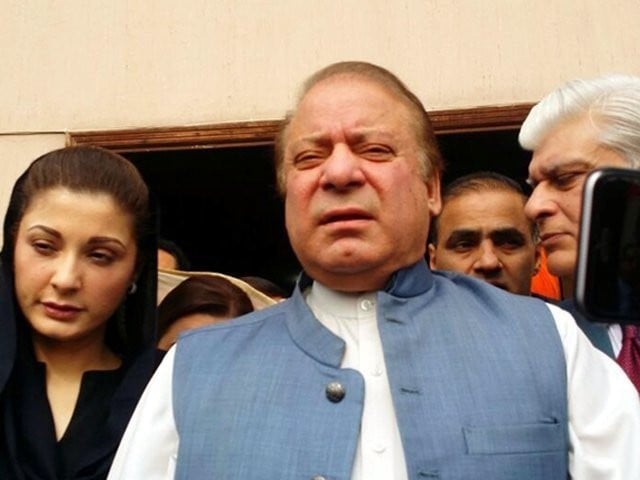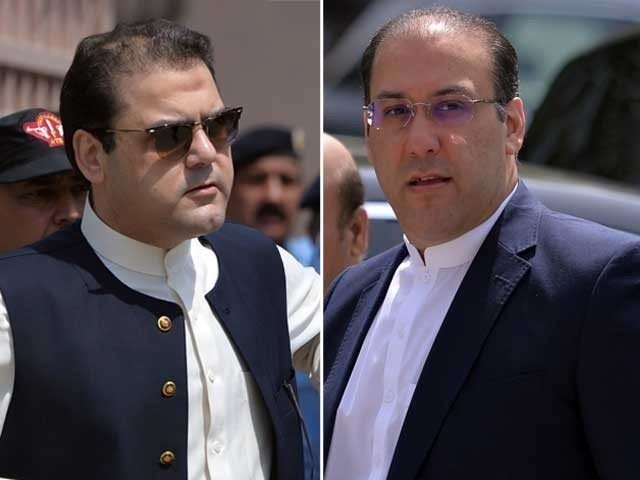WILL THE FORMER CRICKETER IMRAN KHAN BE THE NEXT PRIME MINISTER OF PAKISTAN?

The General Elections in Pakistan are taking place on this Wednesday, July 25, 2018. There is a good chance that Pakistan's former cricket Captain who brought the World Cup home in 1992 may become the next Prime Minister of Pakistan.
It all depends on how many seats his Pakistan Tehreek e Insaf (Justice Movement) wins in the 272 seat National Assembly. The magic number required for an outright majority is 137. With Pakistan's politics splintered as it is, it is expected that no party will win outright majority. However, Khan has an edge over his opponents Pakistan Muslim League N and the Pakistan Peoples Party. Both parties have taken turns in ruling during the last ten years and are accused of massive corruption. The leader of PMLN, Mr. Nawaz Sharif has been sentenced to ten years imprisonment for having assets beyond means and income declared for tax purposes. He fell on his own sword as the Accountability Law he crafted places the burden of proof on the defendant and despite ample opportunity, was unable to provide proof of how he acquired those assets including flats in London's prestigious Park Lane. Khan's other main opponent is Mr. Asif Zardari, the leader of PPP. He too is under clouds as money laundering charges hang over his head.
Opinion polls in Pakistan are as unreliable as the polls in the West if not more. Therefore it is hard to say which party will garner how many seats. The general consensus is that Mr. Imran Khan's party is in the lead and the two major opposition parties are trending downwards. If Mr. Khan's party can win 100 seats, they will need the support of another 37 independents and or smaller parties to form a Coalition Government. However Coalition Governments are fraught with pitfalls. Mr. Khan has run on a platform of clean Government with strong accountability, but in coalition he may have to accommodate some less than savoury characters.
Overall Mr. Imran Khan has a strong brand and he attracts support of young and moderate voters. The largest increase in eligible voters since the last election in 2013 has been amongst young voters. Some estimates suggest as many as 18 million new voters have been added since 2013. This is a clear advantage for Imran Khan's PTI. His public rallies have been massive but then in Pakistan many parties can attract large crowds.
There is an air of expectation in Pakistan that people want a change from the corrupt and inept rule of Pakistan Muslim League-N and the Pakistan People's Party, both of whom have dominated political scene in Pakistan since 1988 (except for the nine years hiatus when Musharraf ruled). The economy has been run into the ground as if deliberately. Both Mr. Zardari and Mr. Sharif have ruled Pakistan particularly during last ten years with license from Washington. The infamous NRO signed by the PPP and Mr. Sharif's assurances to accept India's hegemony in the region is what has given them license to govern through rigged elections. But thanks to Mr. Trump, the United States seems to have no interest in Pakistan's internal politics. Both Zardari and Sharif now look like political orphans in the 2018 elections.
The election results should start coming in soon after 9 PM Pakistan time (4 PM GMT) on July 25.
The General Elections in Pakistan are taking place on this Wednesday, July 25, 2018. There is a good chance that Pakistan's former cricket Captain who brought the World Cup home in 1992 may become the next Prime Minister of Pakistan.
It all depends on how many seats his Pakistan Tehreek e Insaf (Justice Movement) wins in the 272 seat National Assembly. The magic number required for an outright majority is 137. With Pakistan's politics splintered as it is, it is expected that no party will win outright majority. However, Khan has an edge over his opponents Pakistan Muslim League N and the Pakistan Peoples Party. Both parties have taken turns in ruling during the last ten years and are accused of massive corruption. The leader of PMLN, Mr. Nawaz Sharif has been sentenced to ten years imprisonment for having assets beyond means and income declared for tax purposes. He fell on his own sword as the Accountability Law he crafted places the burden of proof on the defendant and despite ample opportunity, was unable to provide proof of how he acquired those assets including flats in London's prestigious Park Lane. Khan's other main opponent is Mr. Asif Zardari, the leader of PPP. He too is under clouds as money laundering charges hang over his head.
Opinion polls in Pakistan are as unreliable as the polls in the West if not more. Therefore it is hard to say which party will garner how many seats. The general consensus is that Mr. Imran Khan's party is in the lead and the two major opposition parties are trending downwards. If Mr. Khan's party can win 100 seats, they will need the support of another 37 independents and or smaller parties to form a Coalition Government. However Coalition Governments are fraught with pitfalls. Mr. Khan has run on a platform of clean Government with strong accountability, but in coalition he may have to accommodate some less than savoury characters.
Overall Mr. Imran Khan has a strong brand and he attracts support of young and moderate voters. The largest increase in eligible voters since the last election in 2013 has been amongst young voters. Some estimates suggest as many as 18 million new voters have been added since 2013. This is a clear advantage for Imran Khan's PTI. His public rallies have been massive but then in Pakistan many parties can attract large crowds.
There is an air of expectation in Pakistan that people want a change from the corrupt and inept rule of Pakistan Muslim League-N and the Pakistan People's Party, both of whom have dominated political scene in Pakistan since 1988 (except for the nine years hiatus when Musharraf ruled). The economy has been run into the ground as if deliberately. Both Mr. Zardari and Mr. Sharif have ruled Pakistan particularly during last ten years with license from Washington. The infamous NRO signed by the PPP and Mr. Sharif's assurances to accept India's hegemony in the region is what has given them license to govern through rigged elections. But thanks to Mr. Trump, the United States seems to have no interest in Pakistan's internal politics. Both Zardari and Sharif now look like political orphans in the 2018 elections.
The election results should start coming in soon after 9 PM Pakistan time (4 PM GMT) on July 25.


